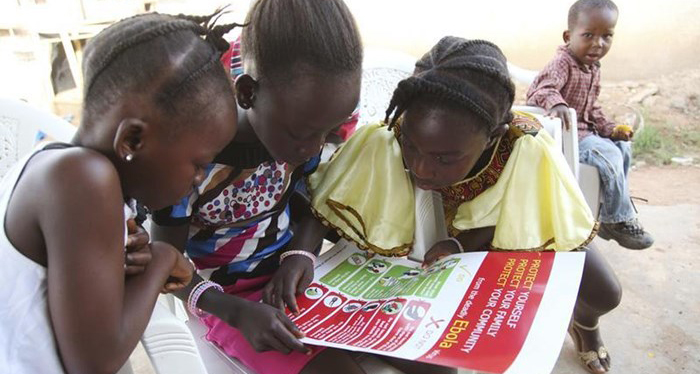With nearly
7,500 people diagnosed with Ebola in West Africa, the epidemic ravaging Guinea, Liberia, and Sierra Leone is the largest in history.
The good news is that even before President Obama classified Ebola as top national security priority, the first line of defense was underway: NGOs. For months now, dozens of organizations have been leveraging their long-standing ties with many West African communities to battle this deadly disease.

As USAID, the CDC, U.S. military, and other U.S. agencies and international institutions ramp up their response, they already have a battalion of partners on the ground. Both InterAction and the Center for International Disaster Information (CIDI) have published lists which show how 63 organizations are partnering to stop the disease at its source. Among them are:
- Save the Children is helping prevent the spread of the virus in all three hot zone countries “by training health workers, teaching tens of thousands of people in communities about how to limit the risks to themselves and their families, distributing protective kits, and providing much needed medical equipment.
- U.S. Fund for UNICEF supports UNICEF, which has been working throughout the region, in Liberia, Sierra Leone, and Guinea but also in Senegal, Gambia, Guinea-Bissau, and Mali to prevent further spread of the virus. Since March UNICEF and its partners have reached at least 5.5 million people, “distributing essential hygiene supplies and letting families know how they can protect themselves.”
- Jhpiego, which has decades of experience in the region, “has been ramping up efforts to provide critical, lifesaving infection prevention and control (IPC) assistance” to the Liberian, Guinean, and Nigerian governments and support for additional health services, including those for pregnant women and newborns who are especially vulnerable.
- International Rescue Committee (IRC), with its strong network in Liberia and Sierra Leone, has been since the start of the outbreak to train and protect medical workers, “preventing people from catching Ebola with ‘alert systems,’ contact tracing and community awareness.”
- Global Communities is working with local leaders in the three most affected counties in Liberia to deliver “outreach messages on preventative hygiene practices” to 366,000 people, in particular women, whose role as family caretakers and health workers puts them at a higher risk.
- Oxfam America joined forces with health authorities in West Africa to provide “gloves, masks, overalls, boots, goggles, and other gear” and get the word out “through radio, print, and training door-to-door messengers” to help “community members understand how they can protect their families from the deadly epidemic.”
[blockquote attribution=”Carolyn Miles|President and CEO of Save the Children”]
“The Ebola crisis is now at a tipping point, as the numbers of cases are likely to increase dramatically in coming weeks.”
[/blockquote]
Here’s where there’s hope. Right now, every person sick with Ebola infects on average a little over two people. Called RO, Ebola spreads at a rate that is way lower than other diseases (like Measles, which has an RO of 18 people). This means that if the average number of people infected drops below one, the disease will start to burn itself out – and the epidemic will be over.
Doing so will require historic levels of support and collaboration inside and outside of government, but in the words of the U.S. Army Medical Research Institute of Infectious Diseases (USAMRIID) working in Liberia, “partnerships are the key.”
#EndEbola
**Have an idea on how to “to improve the personal protective equipment (PPE) and tools” used by healthcare workers battling Ebola? Fighting Ebola: A Grand Challenge for Development was launched earlier this week by USAID Administration, in partnership with the White House Office of Science and Technology Policy, the CDC, and the Department of Defense. To share ideas or to join the conversation, visit http://ebolagrandchallenge.net.**

